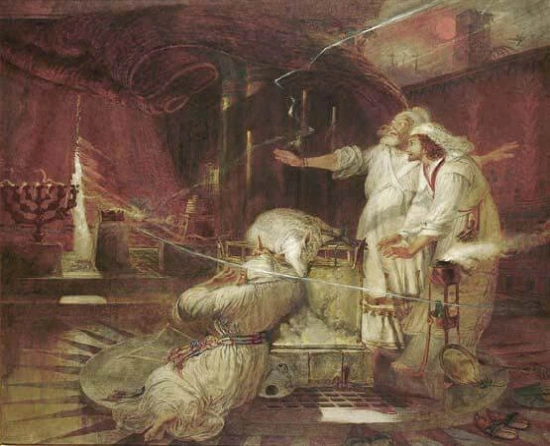8648. 'After he had sent her away' means a separation existing up to now in respect of the state of those belonging to the spiritual Church. This is clear from the meaning of 'sending away' as a separation. The reason why this is in respect of the state of those belonging to the spiritual Church is that in the first state of those who belong to the spiritual Church good is not apparent, only truth. The nature of all this may be seen from what has been shown previously about the two states of those belonging to the spiritual Church, that is to say, where it has been shown that in the first state actions spring from truth, not from good, but that in the second they do spring from good. In the first state, when actions spring from truth, not from good, good is seemingly absent; it is like a wife who has been sent away. But in the second state, when actions spring from good, good is present, and is like a wife joined to her husband (vir). These are the things that are meant in the internal sense by 'sending her away'.
[2] It should in addition be recognized that this is in respect of those who belong to the spiritual Church; for truth coming from the Lord is always joined to its own good. But in the first state, which exists before regeneration, good is not received, only truth, even though both flow in from the Lord by way of heaven. But in the second state, which exists after regeneration, good joined to truth is received. What is brought about by man is said to be something done by the Lord, for the reason that He appears to be the one bringing it about. The situation is the same with very many other things said of the Lord, such as when He is said to do ill, punish, and cast into hell; these things are said to be done by the Lord, because He appears to be the one who brings them about, when in fact everything bad that happens to a person is of human origin. Things like these said of the Lord in the Word are very many, but they are made clear to one who searches the Scriptures with an affection for truth and for the sake of leading a good life; for he is enlightened by the Lord.








